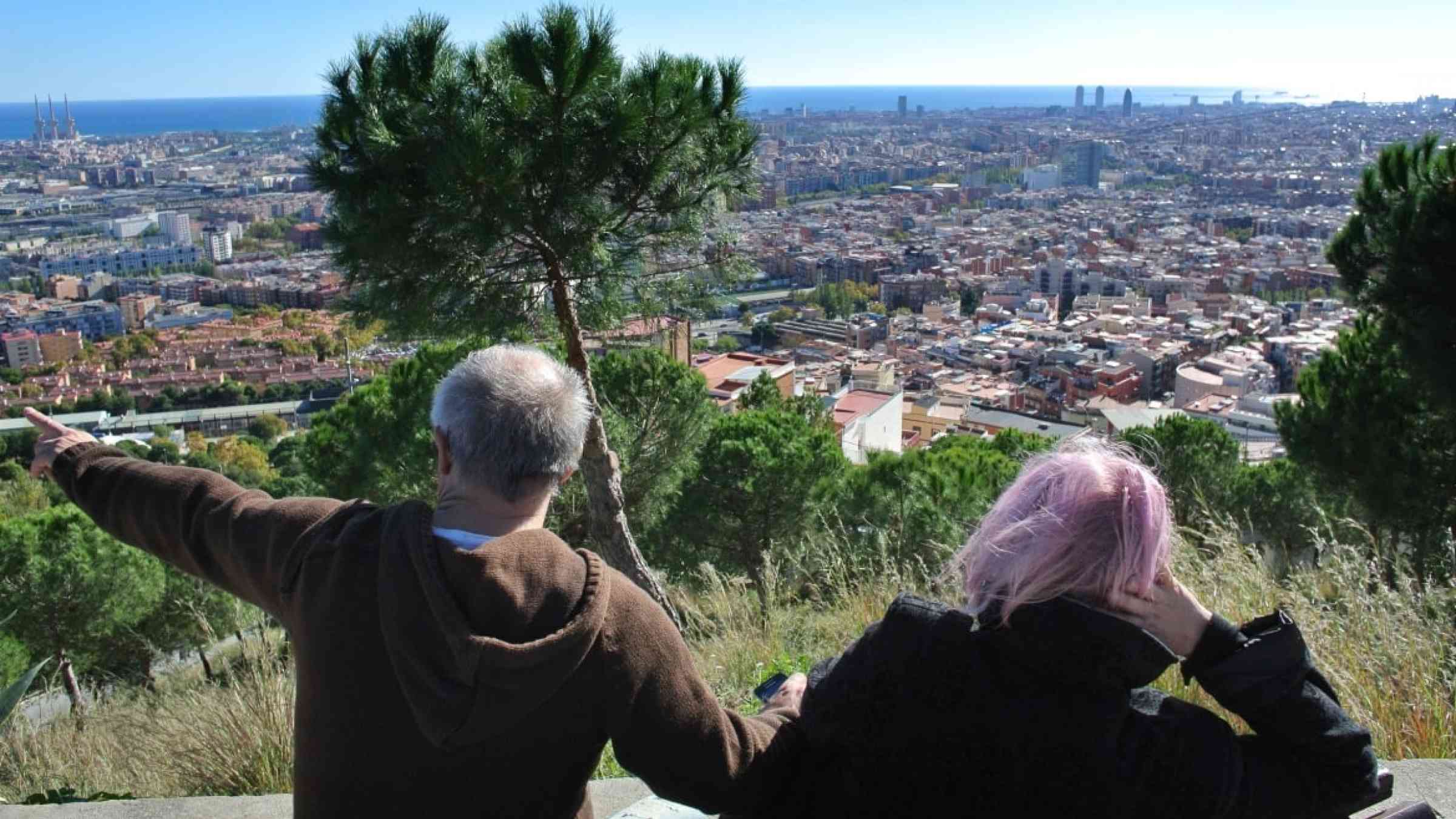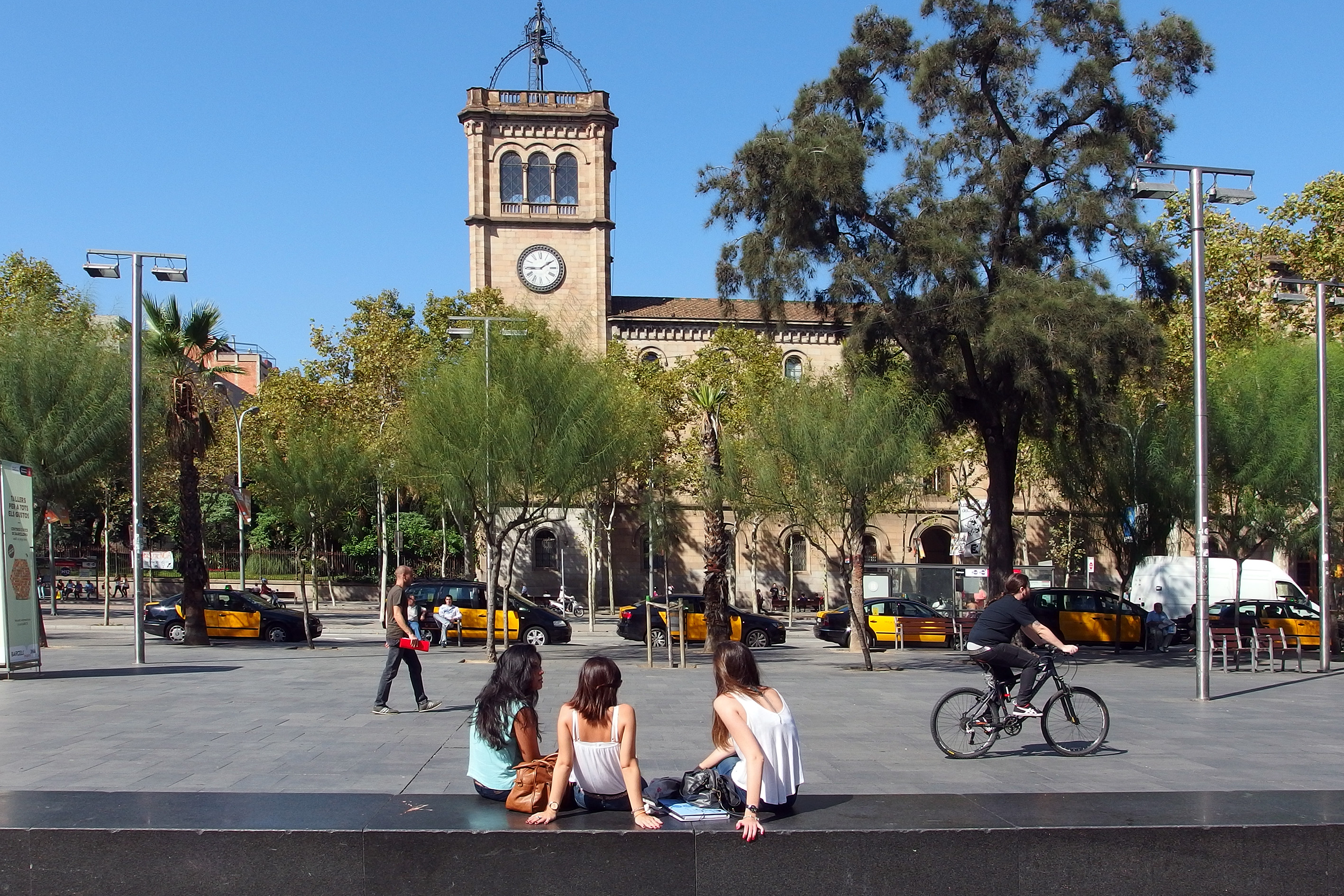Barcelona’s top tips for tackling disaster risk: Inclusion and participation at the heart of resilience building

In November 2021, the Making Cities Resilient 2030 (MCR2030) initiative named Barcelona as Europe’s first Resilience Hub. The city has taken a proactive approach to tackling climate risks and vulnerabilities for many years, and is now eager to share its experience with MCR2030 cities and partners.
A dedicated resilience program
Barcelona’s ‘resilience journey’ has been evolving for many years. A series of critical events between 2006 and 2008 – including extreme drought, interruptions in railway services, and electrical blackouts – prompted the city to spearhead its urban resilience programme. The approach aimed to reduce vulnerabilities through risk reduction projects in its infrastructure and services.
It became clear that Barcelona needed a paradigm shift: the city developed plans to generate resilience, aiming to reduce vulnerability, map scenarios and enable preparedness to tackle hazards.
In 2009, the city set up the Municipal Infrastructures and Urban Services Technical Board, bringing together various city stakeholders involved in services and infrastructure, to stimulate crucial cross-sector collaboration. In 2013 the United Nations recognised Barcelona as a Role Model for Infrastructure and Services; the same year that the city joined the Making Cities Resilient Campaign
An increasingly comprehensive resilience plan
Since 2013, the city has steered its resilience agenda towards a more comprehensive programme, progressively considering a broader spectrum of vulnerabilities. Barcelona’s current sphere of action considers both infrastructure vulnerabilities and natural hazards – as well the socio-economic dimension of risks and their interplay.
This process is led by the Urban Resilience Department, created in 2014, and draws on participants from a variety of municipal areas. Their engagement and collaboration has been essential, allowing the Department to implement its city-wide initiatives and risk reduction projects, and integrate resilience in sectorial strategies.
Resilience is embedded in Barcelona’s Climate Plan 2018-2030 as the city pursues short- and long-term climate action through emissions-reduction targets as well as adaptation measures to reduce vulnerability.
Barcelona can help other cities on their resilience journeys
Networks like MCR2030 allow cities to learn, share knowledge and foster collaboration. They respond to the need for urban areas to adapt and reinvent themselves. As a Resilience Hub, Barcelona’s experience and good practices serve as examples that other urban areas can incorporate into their own pathways to resilience:
1. Defining SDGs at a city level
Barcelona is one of a few cities in the world that have committed to presenting a yearly Local Voluntary Review of the UN’s Sustainable Development Goals (SDGs).
Inspired by the ‘localisation’ of the 2030 Agenda for Sustainable Development, the SDGs are contextualized to the city’s particular situation The Barcelona City Council actively participates in this process, drawing input from across all city sectors. While there is no single framework for doing this globally, the Barcelona City Council can advise and provide guidance on how to ‘localise’ the UN 2030 Agenda, including the selection of targets and indicators.
2. City-to-city cooperation
Barcelona has successfully systematized interaction both within its municipal structures, and with other cities around the world. The city is thus well placed to help other cities take stock of their political, technical and administrative resources to boost city-to-city cooperation processes, and to offer advice on how to involve civil society.
3. Building a Municipal Resilience Committee
As the COVID-19 crisis unfolded in 2020, it became clear that Barcelona needed a responsive resilience model that could cope with a range of shocks and stresses. With that in mind, in 2021 Barcelona redesigned the Resilience Board to become the Municipal Resilience Committee – a high-level forum to prioritise and implement proactive and prevention-oriented resilience projects more flexibly. This Committee places participation at the heart of resilience decision-making.

The importance of global networks and collaborations
As well as MCR2030, Barcelona has also been a member of the Resilient Cities Network since 2015 and has a formal collaboration in place with UN-Habitat’s City Resilience Global Programme, having hosted their office since 2013.
In recent years, Barcelona has shared its model with cities such as Maputo, Dakar and Terrassa, who have adapted ideas about building resilience to be used in their own resilience plans. As well as helping cities around the world adapt, Barcelona wants to contribute to a more resilient planet – and global networks like MCR2030 are crucial for this evolution.
The city is ready to offer help other cities with a range of resilience-related issues, such as vulnerability analysis, studies of risk impacts, and other governance aspects related to Barcelona’s urban resilience.
Barcelona extends an offer to mentor other cities interested in setting off on their own resilience journeys, and encourages them to join the MCR2030 initiative.
“Being recognized as one of the first European Resilience Hubs is recognition of our city’s commitment to be a safe, healthy and more inclusive environment, ensuring our citizens’ well-being. It also provides us with an excellent framework for building resilience in our city – as well as on a global level.”
Ares Gabàs, Chief Resilience Officer of Barcelona
Ares Gabàs Masip is head of the Urban Resilience Department of Barcelona City Council since 2014. She has a background in architecture and public space, and currently works on developing risk reduction assessment and implementation projects and tools, as well as the city’s resilience strategy.

